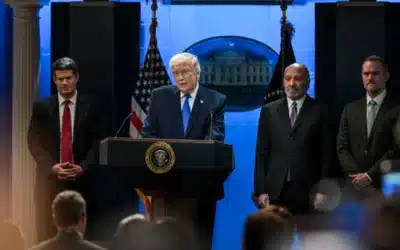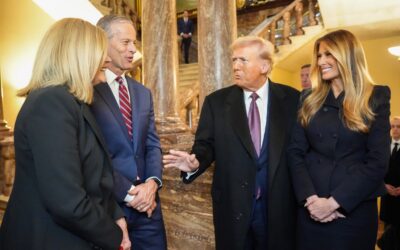The Senate voted to repeal the extensive sanctions on Syria that were aimed at removing Syrian President Bashar al-Assad from power. Assad fled Syria in November, and former al-Qaeda leader Abu Mohammad al-Jolani took power.
On Thursday, the Upper Chamber voted 77-22 to approve the National Defense Authorization Act (NDAA) 2026, which includes the repeal of sanctions on Syria. Since a war broke out in 2010, Syria has been subject to increasing sanctions from the US.
Rep. Joe Willson celebrated the vote in an X post. “Grateful the Senate has passed a REPEAL of the Caesar Act as part of the NDAA!” he wrote. “These very severe sanctions were imposed on a regime which, thankfully, no longer exists. Syria’s success now depends on FULL & TOTAL repeal.”
Grateful the Senate has passed a REPEAL of the Caesar Act as part of the NDAA!
These very severe sanctions were imposed on a regime which, thankfully, no longer exists. Syria’s success now depends on FULL & TOTAL repeal.
— Joe Wilson (@RepJoeWilson) October 10, 2025
During an address to the UN last month. Jolani, who now goes by Ahmed al-Sharaa, called for sanctions on Syria to be removed. “We have a big mission to build the economy,” he said. “Syria has a diverse workforce. They love to work. It’s in its genes, so don’t be worried. Just lift the sanctions, and you will see the results.”
The sanctions were a part of a dirty war against Assad waged by Washington. The US backed the Sunni resistance to Assad, which included jihadist factions. Jolani was the leader and founder of al-Qaeda’s Syria affiliate.
While Jolani publicly split with al-Qaeda and rebranded his militia, he remained tied to jihadist groups. Since taking power, Julani’s government had committed several ethnic massacres against minority sects.
Still, the US and Western governments have embraced Jolani. President Donald Trump has met with the former al-Qaeda commander multiple times. Jolani fought against the US for al-Qaeda in Iraq during the Iraq War.
The move to repeal the sanctions is likely to have the support of the White House. In July, Trump rolled back some of the sanctions enforcement on Syria.

































